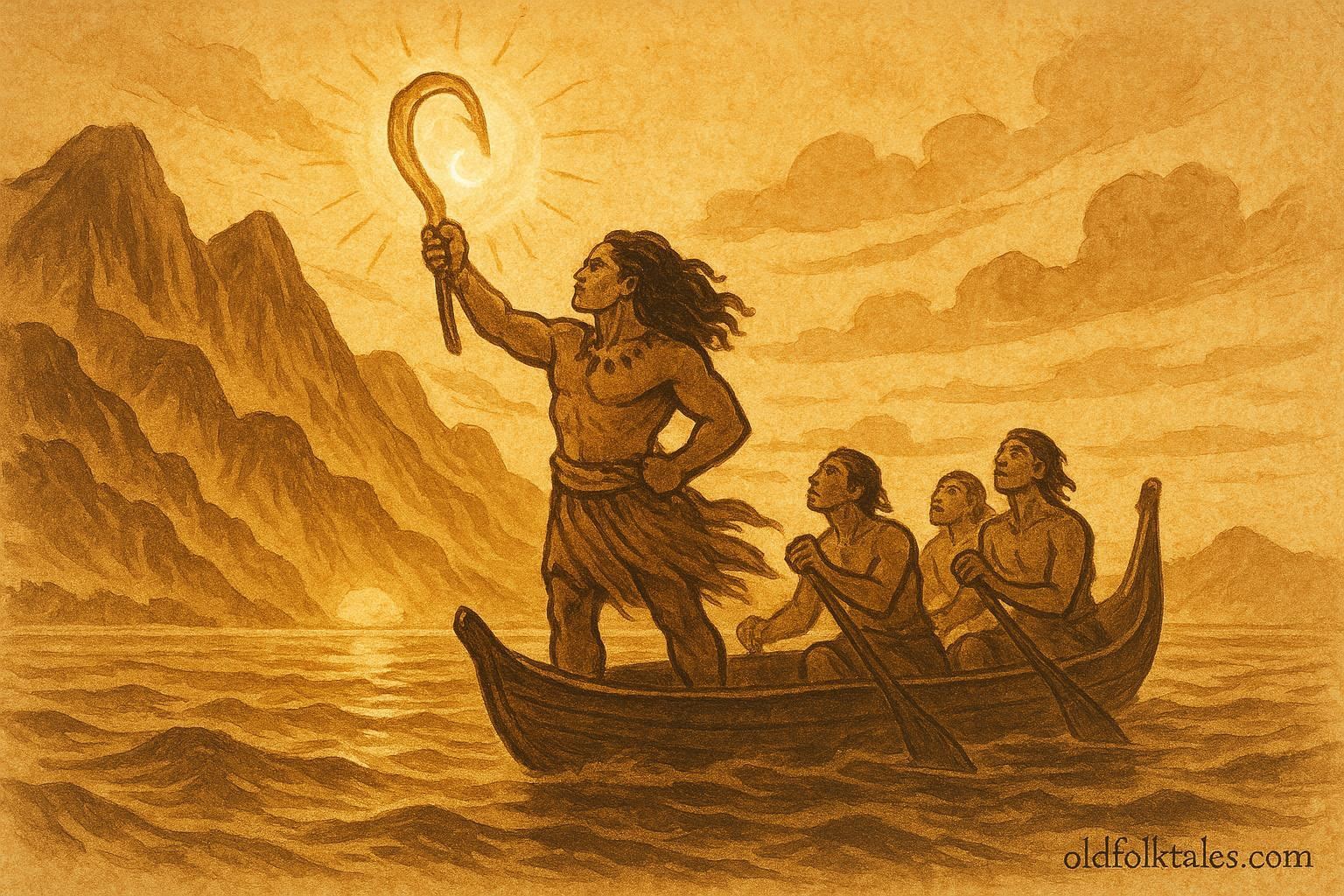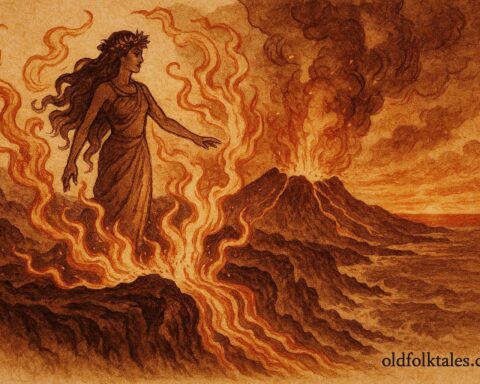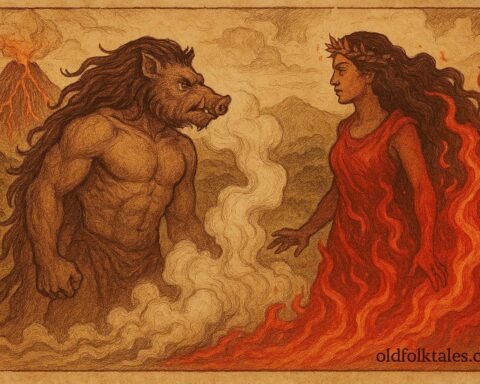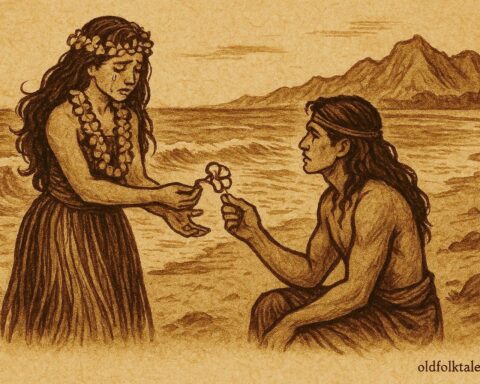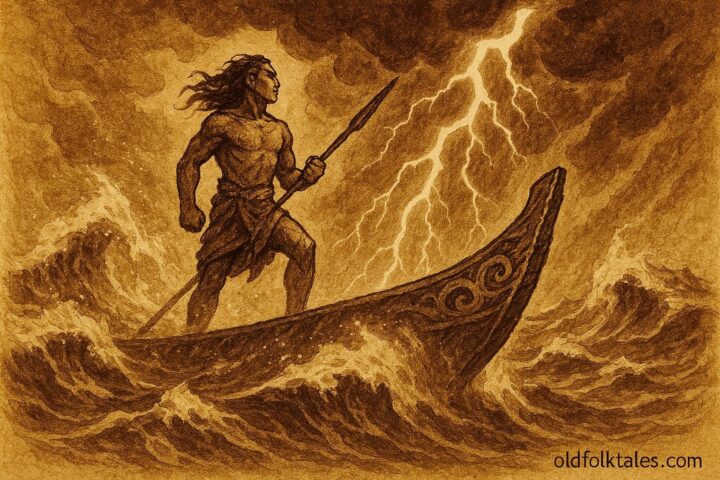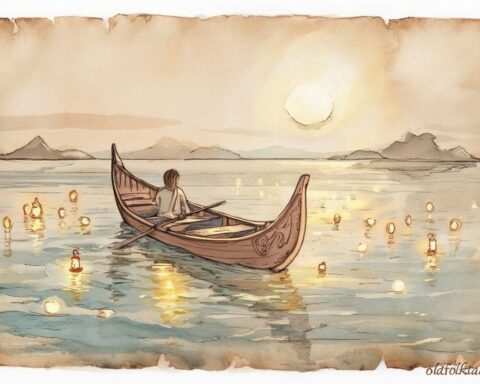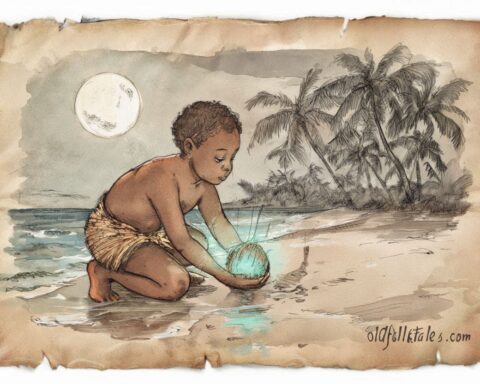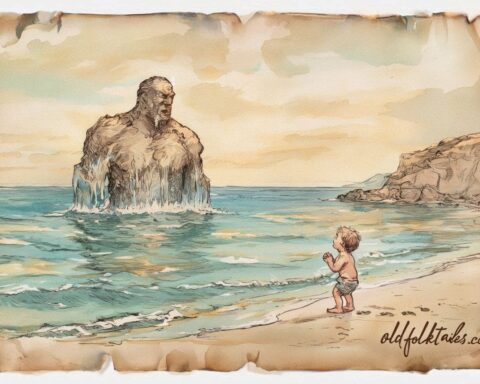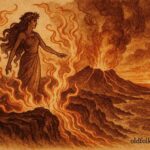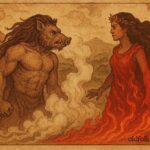In the time when the world was young and the great ocean stretched endlessly beneath the heavens, there lived the demigod Māui, the daring son of the goddess Hina. He was clever, strong, and endlessly curious, a trickster and teacher, loved and feared in equal measure by mortals and gods alike.
Māui had already performed many wondrous deeds. He had slowed the racing sun, lifted the sky higher from the earth, and stolen the secret of fire for humankind. Yet his heart still longed for a greater challenge, something that would prove his courage to the heavens themselves.
Explore tales of ancestral spirits and island creation that connect people to the land and sea
One evening, as the crimson sun sank beyond the edge of the sea, Māui sat with his brothers on the shore. They were fishermen, men of skill and patience, and they took pride in the bounty they brought from the ocean. But Māui looked out upon the horizon and said, “Why do we cast our lines only for fish when greater treasures lie hidden beneath these waves? The sea conceals the bones of the earth itself. If I can draw them forth, our people will have new lands to live upon.”
His brothers laughed, thinking it was one of Māui’s tricks. But Māui did not smile. From a bundle wrapped in tapa cloth, he drew out a shining fishhook, Manaiakalani, the Hook of the Heavens. It was carved from the sacred jawbone of an ancestor, polished until it gleamed like moonlight. Its mana, or divine power, was said to command the spirits of the deep.
The brothers grew silent. They knew that to use such an object was to touch the divine.
Before dawn, Māui prepared his canoe and called to his brothers. “Come,” he said. “We will not fish for small things today.” Though they hesitated, curiosity overcame their fear, and they followed him. Together, they paddled far out into the vast blue ocean, farther than any fisherman had ever dared.
The sea was calm and silent. Māui chanted softly, invoking the spirits of his ancestors and the god of the sea, Kanaloa:
“O Tangaroa, god of the deep,
grant me a gift from your hidden realm.
Let my hook find the heart of the earth,
that new life may rise for humankind.”
When his chant was done, Māui cast Manaiakalani into the depths. The line hissed through the air and vanished beneath the waves. Down it sank, past the darting fish, past the forests of coral, past the dark creatures that never saw the light of day.
Then, suddenly, the line grew taut. The canoe shuddered, and the sea seemed to hold its breath. Māui’s eyes flashed. “It is caught!” he cried. “Paddle with all your strength!”
The brothers obeyed, driving their paddles deep into the water. The ocean began to churn as though alive. Māui braced his feet, muscles straining as he hauled on the line. The sea heaved, groaned, and from its depths came the grinding roar of stone against stone.
The surface broke, first with a trembling shadow, then a surge of rising land. Peaks and cliffs began to emerge, water cascading down their sides like tears of the ocean.
“Māui, what is it?” cried one brother.
“Do not look back!” Māui commanded. “Keep your eyes on the horizon! Paddle, and do not stop! If you turn to look, the spell will break!”
They paddled harder, their hearts pounding as mountains rose behind them, stretching toward the sky. The ocean foamed and hissed, unwilling to release its treasure.
But curiosity is a powerful thing. One of the brothers could not resist. “We must see what we are pulling!” he said, glancing over his shoulder.
In that instant, the line snapped. The echo thundered across the waves. Māui staggered back as Manaiakalani flew from his hands, its sacred power spent. The churning sea stilled, and silence fell.
Behind them, the great mass of land ceased its rising. What had emerged remained, a chain of islands, their edges jagged and unfinished. The spell was broken, the work incomplete.
Māui stood silently, his eyes fixed on the new land that stretched across the horizon. “Had you not looked back,” he said softly, “this would have been one great island, united and whole. But now it shall remain forever divided, many islands born from one effort.”
His brothers bowed their heads, ashamed. Yet Māui did not curse them. He only smiled faintly. “Still, the gods have been generous. These islands will cradle our descendants and feed their spirits. And when the people look to the heavens, they will see my hook shining there among the stars, Manaiakalani, the Hook of Heaven, a reminder of what might have been.”
And so it is told that the Hawaiian Islands, O‘ahu, Maui, Hawai‘i, Kaua‘i, and the rest, were drawn up from the sea by Māui’s strength, shaped by divine power, and scattered by human frailty.
To this day, the constellation resembling a fishhook glows above the Pacific, eternal proof of the demigod’s daring and the lesson his story holds: that courage and faith can move mountains, but obedience preserves them.
Moral Lesson
This Hawaiian folktale teaches that courage, faith, and divine wisdom can bring forth greatness, yet even the strongest efforts are undone by disobedience and impatience. True success requires trust, humility, and unity of purpose.
Knowledge Check (Q&A)
- Who is the central figure in “The Fishhook of Maui”?
The story centers on Māui, the Hawaiian demigod known for his cleverness and strength. - What is the name of Māui’s magical fishhook?
His sacred fishhook is called Manaiakalani, meaning “The Hook of Heaven.” - What happens when Māui’s brothers disobey his command?
Their curiosity breaks the spell, causing the fishing line to snap and leaving the Hawaiian Islands separate instead of one. - What cultural lesson does this folktale teach?
The myth teaches the importance of obedience, patience, and collective trust when facing divine or sacred challenges. - How does this story explain the formation of the Hawaiian Islands?
The islands were believed to be the unfinished land that Māui fished up from the sea before his brothers broke the spell. - What does the constellation Manaiakalani symbolize today?
It symbolizes Māui’s fishhook shining in the night sky, a celestial reminder of creation, faith, and divine connection in Hawaiian culture.
Source: Hawaiian Folk Tales: A Collection of Native Legends edited by Thomas G. Thrum (1907)
Cultural Origin: Hawaiian (Polynesian)
